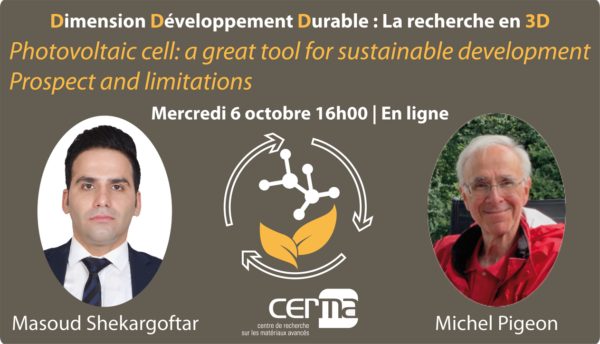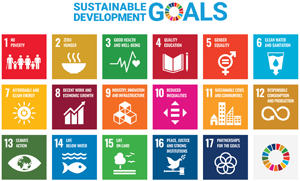Photovoltaic cell: a great tool for sustainable development – Prospect and limitation
Summary
Solar energy is one of the ways to diminish our dependence on fossil fuels and to face greenhouse gas emissions. A photovoltaic cell (PV) is a tool for converting the sun’s energy into electrical energy. PV is a sustainable source and is inherently more sustainable than fossil fuel energy sources. This field is driven by the desire to manufacture low-cost PVs to economically harness the single most sustainable resource on the planet; the light of the sun. This seminar presents state-of-the-art PVs in the research community as well as the source of global power generation. The keynotes will be:
- How green energy is crucial for sustainable development
- A historical trend from photoelectric to PVs
- Generations of PVs
- Opportunities for enhancing solar energy harvesting
- Limitations & challenges of production for the environment
- Critical Materials for solar energy
- Materials engineering: developing new materials
This activity took place on Wednesday October 6, 2021 and is part of our seminar series entitled Dimension Sustainable Development: Research in 3D.
Presentator : Masoud Shekargoftar
Postdoctoral researcher in the team of Diego Mantovani, researcher at the Technical University of Denmark (DTU), Denmark and at Friedrich–Alexander University Erlangen–Nürnberg, Germany. Masoud received a PhD in plasma physics from Masaryk University, Czech Republic.
Moderator : Michel Pigeon
Professor emeritus of civil engineering at Laval University, former rector of Laval University and doctoral student at Laval University entitled Global Warming, Youth Values and Social Change.

Learn more :
The Sustainable Development Goals
We invite you to read about the UN Sustainable Development Goals (SDGs).
Action plan on environmental responsibility in research
On January 26, 2021, the Quebec Research Funds (FRQ) launched the Action Plan on Environmental Responsibility in Research.
Contributing to the protection of the environment is a duty that transcends all sectors of society, including the scientific community. To support members of the scientific community through this responsibility, the Fonds de recherche du Québec (FRQ) are deploying their Action Plan on Environmental Responsibility in Research.



